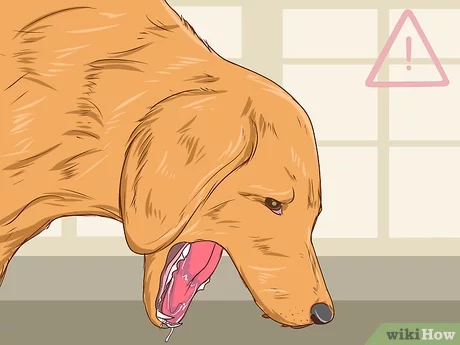Can Dogs Get Norovirus
Can Dogs Get Norovirus? What You Need to Know
Norovirus is a highly contagious virus that can cause vomiting, diarrhea, and stomach cramps in humans. It’s often associated with outbreaks on cruise ships, nursing homes, and other crowded places where people share food, water, or close quarters. But can dogs get norovirus too? In this article, we’ll explore what is known about the risks, symptoms, and treatments for norovirus in dogs.
What Is Norovirus?
Norovirus is a type of virus that belongs to the family Caliciviridae. It’s also called “winter vomiting bug” or “stomach flu” because it tends to peak in the winter months and affect the digestive system. Norovirus can spread through contaminated food or water, or by direct contact with an infected person or surface. The virus can survive for days on surfaces and up to two weeks in water.
Norovirus Symptoms in Humans
The symptoms of norovirus usually appear within 12-48 hours after exposure and last for 1-3 days. The most common symptoms are:
– Nausea
– Vomiting
– Diarrhea (watery and non-bloody)
– Stomach cramps
– Low-grade fever
– Headache
– Muscle aches
Norovirus can be more severe in young children, older adults, and people with weakened immune systems. It can lead to dehydration, hospitalization, and even death in rare cases.
Can Dogs Get Norovirus?
While there have been some reports of dogs getting sick from norovirus, it’s not clear how common or serious this infection is in dogs. According to the American Veterinary Medical Association (AVMA), there is no evidence that dogs can transmit norovirus to humans or vice versa. However, dogs may contract norovirus from contaminated food, water, or surfaces, or from exposure to an infected person or animal.
Norovirus Symptoms in Dogs
The symptoms of norovirus in dogs may vary depending on the severity of the infection and the age, breed, and health status of the dog. Some signs that your dog may have norovirus include:
– Vomiting
– Diarrhea (bloody or non-bloody)
– Fever
– Lethargy
– Appetite loss
– Dehydration
If you suspect that your dog has norovirus, you should contact your veterinarian for advice on how to manage the symptoms and prevent further spread of the virus.
Norovirus Treatment in Dogs
There is no specific treatment for norovirus in dogs. The main goal is to support the dog’s hydration and nutrition while the virus runs its course. Your veterinarian may recommend:
– Fluid therapy (oral or intravenous) to prevent dehydration
– Antiemetic medication (such as Cerenia) to reduce vomiting
– Probiotics (such as Fortiflora) to restore gut bacteria balance
– Bland diet (such as boiled rice and chicken) to ease digestion
It’s important to follow your veterinarian’s instructions carefully and avoid giving your dog any medication or food without their approval.
Preventing Norovirus in Dogs
To reduce the risk of norovirus in dogs, you can take some preventive measures such as:
– Wash your hands thoroughly with soap and water before and after handling your dog, especially if they show signs of illness.
– Clean and disinfect all surfaces that your dog comes into contact with, including toys, bedding, and bowls.
– Avoid sharing food or water with your dog or other animals.
– Keep your dog up-to-date on their vaccinations and deworming treatments.
– Avoid exposing your dog to crowded places where norovirus may be present, such as kennels, dog parks, or pet stores.
Conclusion
Norovirus is a common and highly contagious virus that can affect humans and dogs. While there is no evidence that dogs can transmit norovirus to humans or vice versa, it’s important to take precautions to prevent the spread of the virus among dogs and between species. If you suspect that your dog has norovirus, seek veterinary care immediately and follow their advice on how to manage the symptoms and prevent further spread of the virus. Remember to wash your hands often, clean and disinfect surfaces regularly, and avoid exposing your dog to risky situations. Stay safe and healthy!



